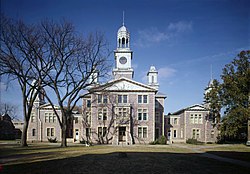| Discipline | Literary journal |
|---|---|
| Language | English |
| Edited by | Lee Ann Roripaugh |
| Publication details | |
| History | 1963-present |
| Publisher | |
| Frequency | Quarterly |
| Standard abbreviations | |
| ISO 4 | S. D. Rev. |
| Indexing | |
| ISSN | 0038-3368 |
| Links | |
The South Dakota Review (SDR) is a quarterly literary magazine published by the University of South Dakota.
